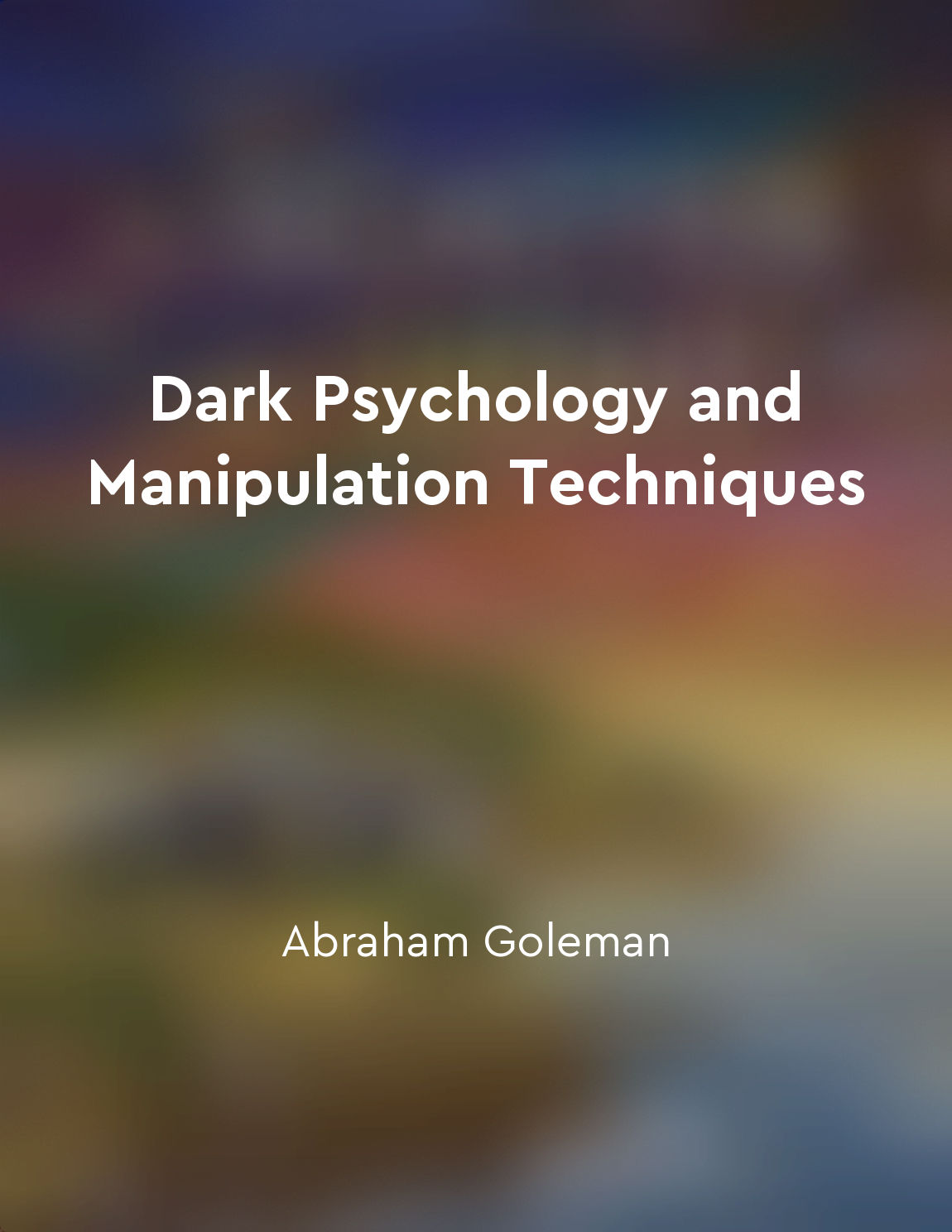rhetorical techniques in manipulation from "summary" of Dark Psychology and Manipulation Techniques by Abraham Goleman
Rhetorical techniques are used in manipulation to influence the way people think and act. These techniques involve the use of language to persuade, convince, and influence people to follow certain ideas and beliefs. By understanding these techniques, it is possible to gain a deeper insight into the power of rhetoric and manipulation.- Establishing authority is another rhetorical techniques in manipulation. Strong confident body language, uniforms and even awards or commendable credentials serve to set an individual apart from the rest. With that comes an inflated sense of power as well.
- Rhetoric is a powerful tool used by people to persuade others and make their points of view clear. It can range from using persuasive language to appealing to emotions in order to get someone to do what someone wants.
- To achieve the desired outcome in any conversation, the use of selective facts, unsubstantiated claims or false premises can be employed. This allows manipulators to distort reality in order to have outcomes more ideal to them.
- People who practice manipulation may also employ negotiation tactics such as good cop, bad cop, batting offers back and forth, and insistent requests. After all, if persuasion fails – deal-making offers a second opportunity.
- By influencing the way people think about a particular piece of information, perspective and reaction towards it are shaped. An example of this would be applying double standards, focusing on one side of the story, and making indirect hints.
- Emotional trigger phrases use people’s psychology against them. By triggering their emotions, it can be easier to gain compliance and reduce resistance from them. These phrases contain words to spark guilt, pity, fear, and shame.
- Stats and figures can be used to try and manipulate too, by swaying opinion through the use of data collected and manipulated in notionally impartial ways. They can appear authoritative and sound convincing when presented without critical examination.


